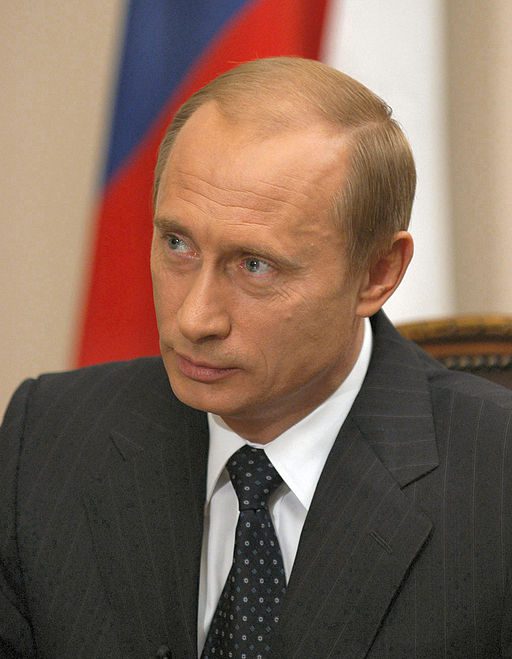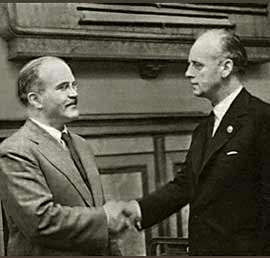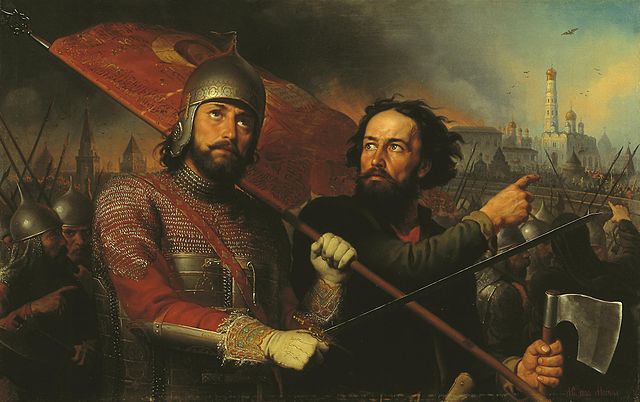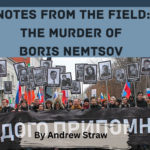Yesterday, Russia Beyond the Headlines published an article explaining that President Vladimir Putin has ordered historians to write a single Russian history textbook for secondary-school students. Putin wants a textbook with no “internal contradictions,” or “different interpretations.”
We think readers of Not Even Past would be interested in this government effort to control the ways historians write and teach history, so we have republished the article in its entirety. The original can be found here.
New history textbooks may promote conservative values in Russia
March 22, 2013 Stanislav Kuvaldin, special to RBTH
A single textbook is being drafted in Russia, following Putin’s call for a single concept of Russian history.
The Russian government has tasked scholars with preparing a single textbook of the history of Russia, to replace the host of Russian history manuals on the market at the moment. Experts assume that the new textbook will most likely aim to uphold conservative values in society.
It is possible that, in just one year’s time, Russian secondary-school students will be learning their country’s history from a single textbook, Russia’s Education and Science Minister Dmitri Livanov recently announced.
In a previous development, President Vladimir Putin underscored the need to develop unified textbooks in Russian history for secondary schools.
 According to Vladimir Putin, the new textbook must “be based on a single concept, drawing on the same logic of continuous Russian history, on interconnection between all its stages, and respect for all its milestones.” He also noted that the textbook must also be free of any “internal contradictions,” and it should not allow “different interpretations.”
According to Vladimir Putin, the new textbook must “be based on a single concept, drawing on the same logic of continuous Russian history, on interconnection between all its stages, and respect for all its milestones.” He also noted that the textbook must also be free of any “internal contradictions,” and it should not allow “different interpretations.”
Why is a single concept for the history textbook even considered necessary? Supporters of the move point to the fact that 82 history textbooks are currently recommended for schools by the Education Ministry, even though some of these texts cite unverified facts and controversial concepts regarding the history of Russia.
This argument is championed, among others, by the director of the Institute of Universal History of the Russian Academy of Sciences, Alexander Chubaryan.
He has expounded on his failed attempts to get authors of existing textbooks to reconcile the differences in the way they treat the origins of the Russian state (historians have been debating the extent of the Scandinavian influence on establishment of Russia’s national identity continuously ever since the 18th century), the Great Patriotic War (with the key controversies here being the characterization of Soviet foreign policy following  the 1939 Molotov-Ribbentrop Non-Aggression Pact, as well as the beginning of the Great Patriotic War) and, finally, the post-Soviet phase (where assessments may be grounded in mass media reports and op-ed articles with varying degrees of bias).
the 1939 Molotov-Ribbentrop Non-Aggression Pact, as well as the beginning of the Great Patriotic War) and, finally, the post-Soviet phase (where assessments may be grounded in mass media reports and op-ed articles with varying degrees of bias).
In other words, authors of the numerous grade-school textbooks on Russian history have struggled to agree on how this history even started, where it has come to, and what the last world war meant for the country.
Some moves Putin made during his first two presidential terms — reinstatement of the Soviet anthem with different lyrics, for instance — clearly sent the message that the president was willing to make the Soviet period a respectful part of Russian history.
Meanwhile, the desire to take the edge off some turning points in the recent past is also obvious: take, for one, the public holiday celebrating the anniversary of the October Revolution.
The holiday — renamed the Day of National Unity and Reconciliation — was still there on the calendar up until 2005, when a different historical date in early November was offered. The new date corresponds to the liberation of the Kremlin by a popular uprising from Polish-Lithuanian invaders in 1612.

“The idea of a single history textbook stems from a desire to bring the society together around a certain symbolic center — a center that would justify the existing state of affairs,” Aleksei Titkov, associate professor at the Department of Political Theory and Political Analysis of the Higher School of Economics, believes.
According to Titkov, there was no urgency in such projects during Vladimir Putin’s first and (to a certain degree) second terms in power. “After the crisis of the 1990s, most of the population thought they were fortunate to have Putin anyway,” said the professor. By now, they have grown accustomed to him, so other methods are needed to persuade them that the existing state of affairs is the best possible option.”
“The main ideological message is also quite discernible: unconditional respect for any regime that ruled Russia during various periods of its history, mingled with respect for the traditional family and religion,” Titkov said.
Elena Galkina, a professor in the history department at Moscow State Pedagogical University, points out that this is far from the first attempt by the Russian authorities to commission a history textbook satisfactory for their purposes.
In 2007, such a textbook was effectively written on the order of then deputy head of the Presidential Executive Office, Vladislav Surkov — an official responsible, among other things, for ideology. “The textbook provoked an outburst among professional historians but eventually failed to make its way into schools — mostly because it was not written properly,” said Galkina.
Galkina expects the new textbooks to reflect the emerging trend toward promoting conservative values, which has been taking hold since the beginning of Vladimir Putin’s third term in power.
*
About Russia Beyond the Headlines:
Russia Beyond the Headlines is an internationally recognized source of political, business and cultural news and analysis. It offers original, on-the-ground coverage of Russia from professional, independent journalists who are passionate and knowledgeable about the country, and opinion pieces from commentators who hold a wide range of views about Russia’s leadership and direction.
Russia Beyond the Headlines is produced by leading Russian daily Rossiyskaya Gazeta.
Rossiyskaya Gazeta (www.rg.ru) is the Russian government’s paper of record and provides the official publication of all laws, decrees and official statements of state bodies. In addition to its official functions, Rossiyskaya Gazeta is also a general-interest daily newspaper offering regular coverage of news and events along with opinion and analysis.
You might also enjoy:
Masha Gessen in The New York Times on the same topic: “The Single Logic of Continuous Russian History”
Images: Vladimir Putin, Molotov and Ribbentrop, MIkhail Scottii, “Minin and Pozharsky” (1850)
All images via Wikimedia Commons
*
Posted Saturday, March 23, 2013



